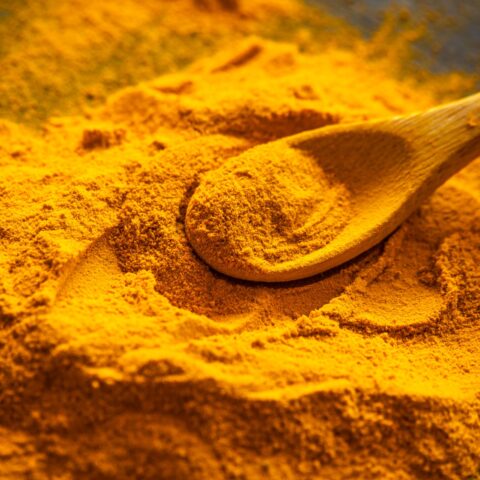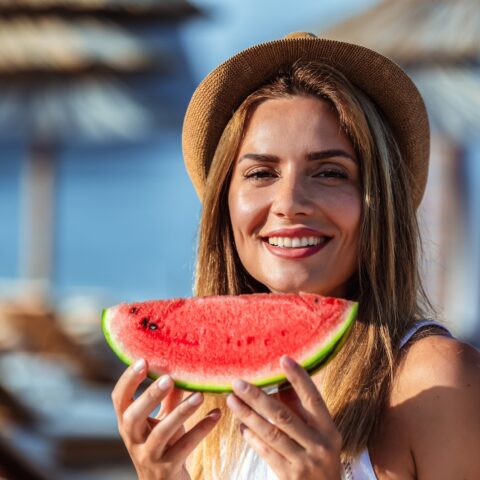Q&A: Dr Cordain answers a question about The Paleo Diet for Athletes

Hi Dr. Cordain,
I recently read your book The Paleo Diet for Athletes (I lift weights about 5-8hr/week). I really enjoyed the book. I noted on page 110 you say “Our experience, supported by the scientific evidence, leads us to believe that, as an athlete, you will benefit from C and E supplements as well.”
Yet in this interview (//sportsnutritioninsider.insidefitnessmag.com/2442/sni-interviews-dr-loren-cordain-author-of-the-paleo-diet) you say “If fatty fish (salmon, mackerel, herring, sardines etc.) aren’t consumed regularly (3-5 times per week), then I recommend taking fish oil. I also recommend taking at least 2,000 I.U. of vitamin D per day if regular sunlight exposure is not possible. All other supplements are unnecessary because the Paleo Diet is so nutrient dense. In fact, large meta analyses (multiple population studies) show that antioxidant supplements can be harmful and actually increase overall mortality.”
(1) So I’m a little confused. I’m assuming it’s the increased free radicals/oxidative stress from regular intense exercise that give people who partake in regular intense exercise an increased demand, but the statement from the interview seems all encompassing. I noticed the interview is dated 2011, but your book was out in 2005. Has your opinion on the use of antioxidant supplements changed in recent years?
(2) In table 9.2 of your book you list canned fish, even sardines and salmon as a food to avoid, but in the interview you specifically mention sardines. Fresh sardines are not commonly available, I’m wondering what it is specifically about canned salmon and sardines that makes it worth avoiding? I just find them to be a highly convenient source of protein and good fats and make compliance for the diet easier.
(3) Also if you don’t mind, I’d really appreciate your take on oxidative stress caused by omega-3/fish oil supplementation and countering with taking Vit. E with your fish oil dose.
Fish oil supplements increase requirements for Vitamin E LONDON, ENGLAND. A recent experiment carried out at King’s College in London showed that daily intake of fish oil supplement reduces the plasma concentration of vitamin E to below normal range. Nine healthy male subjects were given a daily fish oil supplement containing 2.1 g docosahexaenoic acid (DHA) and 0.8 g eicosapentaenoic acid (EPA) for a six week period. The proportion of DHA and EPA in the blood increased during the trial while the concentration of very-low-density-lipoprotein-cholesterol and triacylglycerol decreased. Blood pressure fell slightly during treatment, but rose again once the fish oil supplementation was discontinued. Of particular interest was the finding that alpha-tocopherol (vitamin E) concentration in the blood fell from 20 micromol/l to about 10 micromol/l during the experiment. This raises the question whether fish oil supplementation increases the need for antioxidant supplementation.
Sanders, T.A.B. and Hinds, Allison. The influence of a fish oil high in docosahexaenoic acid on plasma lipoprotein and vitamin E concentrations and haemostatic function in healthy male volunteers. British Journal of Nutrition, Vol. 68, July 1992, pp. 163-73
I know you’re busy. So I really appreciate any time you take to respond to this e-mail.
Thanks,
Sincerely
E. Ryan
Dr. Cordain’s Response:
Hi Ryan,
Good to hear from you. Joe Friel (my co-author of the Paleo Diet for Athletes) have recently revised our book and the revision will hit the bookstores in the Fall. We have modified some important points in the book and can no longer support the use of any antioxidants by athletes. If you want to find out why before the release of our revised book, I have touched upon this topic as well in my new book, The Paleo Answer. So, indeed, I have changed my perspective in this area based upon new comprehensive meta analyses that weren’t available in 2005.
All canned fish and meat contain high concentrations of oxidized cholesterol which in animal models accelerate the atherosclerotic (artery clogging) process. Additionally, as I have pointed out in my first book, the vitamin content of canned meats and fish is significantly lower than either fresh meat or fish. Hence, it is always preferable to eat fresh meat and fish whenever possible.
Not consuming long chain omega 3 fatty acids (EPA and DHA) from either fatty fish or fish oil represents a much greater risk to overall heath than the slight reductions produced in vitamin E status. Most meta analyses of either fish or fish oil consumption shows that long chain omega 3 fatty acid reduce overall mortality (death) from all causes and morbidity (disease incidence) from a wide variety of diseases that impact most of the western world.
Cordially,
Loren Cordain, Ph.D., Professor Emeritus
Loren Cordain, Ph.D.
As a professor at Colorado State University, Dr. Loren Cordain developed The Paleo Diet® through decades of research and collaboration with fellow scientists around the world.
More About The Author



